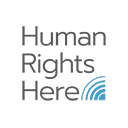2024 Research Workshops
The Human Right to a Healthy Environment: What Impact on Intellectual Property Laws? - 4 December 2024, University of Amsterdam
On 4 December 2024, Dr. Elena Izyumenko and Eva Meyermans Spelmans organized a research workshop on "The Human Right to a Healthy Environment: What Impact on Intellectual Property Laws?" The workshop delved into the tension between IP laws and the emerging human right to a healthy environment, addressing the obstacles posed by IP holders to sustainable business models. By adopting a human rights law perspective, the event sought to analyze how IP frameworks might better align with sustainability objectives and support a transition to a just and environmentally conscious economy.
Human Rights and the Visual: From Research to Comics - 4 October 2024, Erasmus Rotterdam University
“Human Rights and the Visual” is a new series of screenings and events aimed at investigating how human rights are perceived and experienced on the ground by means of visual arts. This edition was organized by Siobhan Airey, Amr Marzouk, Federica Violi (ESL), and Janna Wessels (VU), in collaboration with the NNHRR. Focusing on Prof. Maja Janmyr's graphic novel, Cardboard Camp: Stories of Sudanese Refugees in Lebanon, the event demonstrated how scholarly work can transcend academic boundaries. Prof. Janmyr shared her journey of converting rigorous academic research into the engaging format of a graphic novel and how it broadened the reach and impact of her work.
The Implications of Generative AI in the EU Data and Copyright Protection Frameworks - 19 September 2024, University of Amsterdam
NNHRR members Prof. Eleni Kosta, Dr. João Pedro Quintais, and Taner Kuru hosted a workshop examining the implications of Generative AI within the EU’s data protection and copyright frameworks on September 19th. This event explored how Generative AI interacts with legal boundaries, addressing compliance, ethical issues, and future impacts. Specifically, it focused on the implications of using publicly accessible online data to train these models in the data protection framework and whether and to what extent the copyright regime on text-and-data mining provides an adequate framework to regulate the development of Generative AI.
Read the full report of the workshop here.
Conference: Protest under Pressure - 25 January 2024, Tilburg University
On January 25, 2024, Tilburg Law School hosted a conference on "Protest under Pressure." The conference was organized by Daniel Augenstein, Michiel Bot, and Phillip Paiement of the Department of Public Law and Governance, with Jeff Handmaker of the International Institute of Social Studies, Erasmus University Rotterdam, and Marthe Heringa of the Legal Mobilization Platform. The conference examined the impacts of policing and prosecution tactics on activists and members of social movements working on issues such as environmental and climate justice, racial justice, LGBTQI+ rights, migrant rights, indigenous rights, and anti-apartheid campaigns. The increasing risks of violence, detention, and surveillance faced by these communities raise fundamental concerns about the constitutional space for legitimate political speech and action, including civil disobedience. The conference provided a forum for discussing the challenges these communities face, as well as strategies—legal, political, and organizational—for confronting this crackdown. Discussions also addressed the impacts of these repressive actions on public forums for political speech and action and democratic institutions.
Read the report of the conference here.
Disinformation and Human Rights in Context - 24 January 2024, Leiden University
Organized by Leiden University, this workshop brings together academic and other experts to discuss the broad interaction between disinformation and human rights in an era of technological advancement. It has a multidisciplinary focus, touching upon substantial questions of law and the practicalities and obstacles in conducting research in the field of disinformation. The workshop will be in-person only and conducted in English. Participation is open to everyone and will be particularly interesting for practitioners, academics, and students.
Register here.


